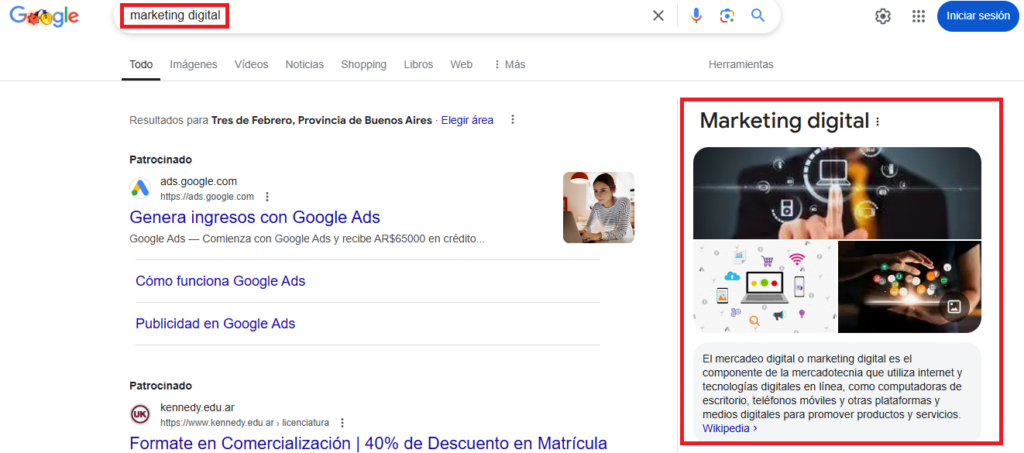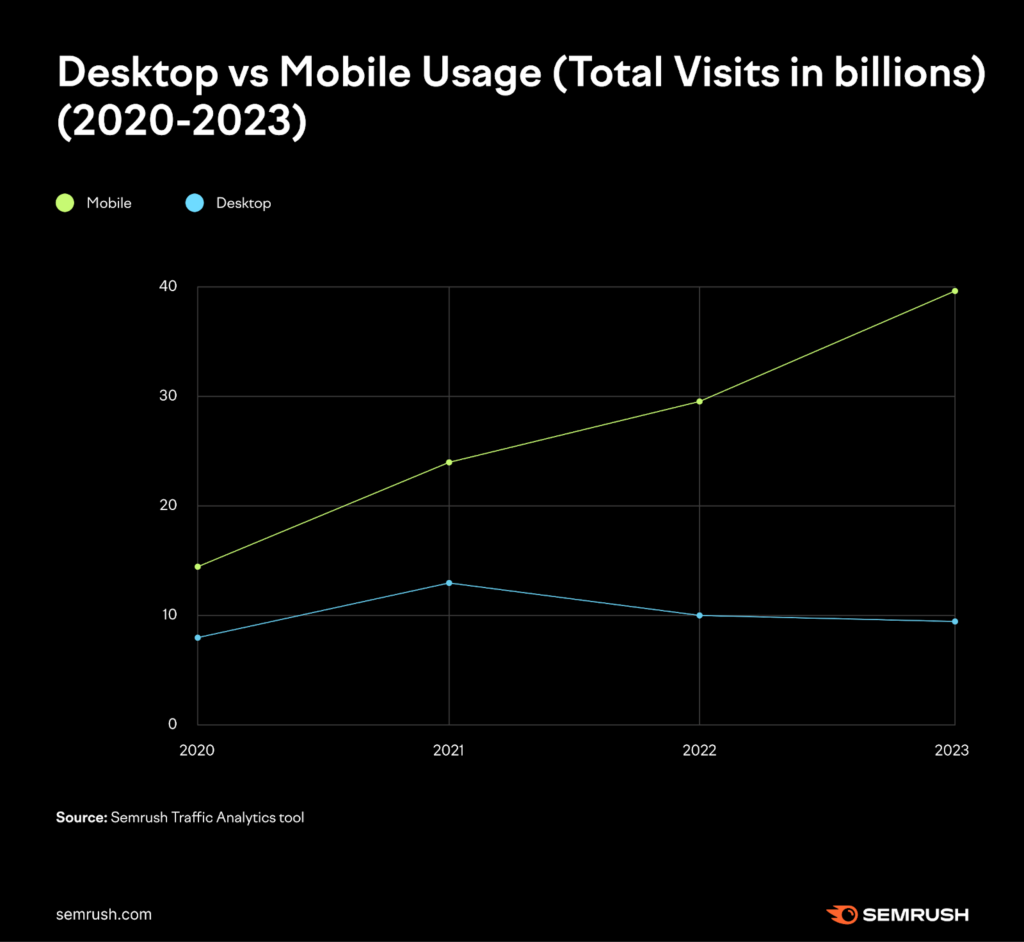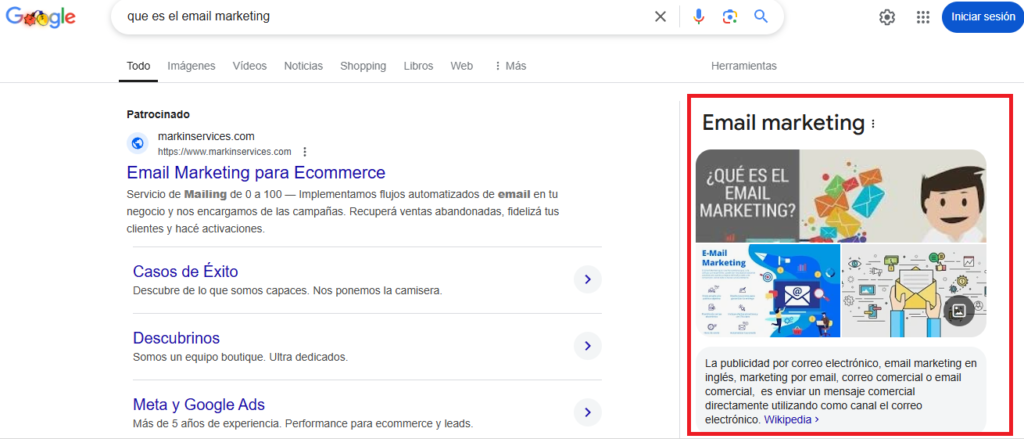No-click searches, or zero-click searches, are transforming the landscape of digital marketing. This phenomenon, which is constantly growing, poses significant challenges for businesses and experts in every area of marketing. To avoid potential negative effects on your website, it’s essential to understand their impact and adjust your strategies to remain competitive in a Google-dominated environment.
What Are No-Click Searches or Zero-Click Searches?
No-click searches, also known as “zero-click searches”, occur when users obtain the information they are looking for directly on the search engine results page, without needing to click on any external links.
But you might wonder, how is this possible? Simple! Thanks to elements like featured snippets, knowledge panels, or direct answer boxes that provide immediate answers to specific queries.
Who Is More Likely to Get This Type of Results?
Primarily, it can be confirmed that this phenomenon is much more common in searches requiring concise answers, such as definitions, weather conditions, currency conversions, or factual data. For example, when searching for “digital marketing,” Google might display the definition directly in the results, as can be seen in this case, eliminating the need to visit an additional webpage.

Another notable trend is that a high percentage of these results are found among users who opt to perform searches on mobile devices rather than desktops. This chart shared by Semrush proves the point:

The Impact of No-Click Searches on SEO
The rise of no-click searches has significantly impacted SEO strategies and website traffic generation. The positive? They enhance the user experience by providing quick answers. The negative? They reduce the number of clicks websites receive, as users find the information they need without leaving the search results page.
To adapt to this trend, it’s essential for websites to optimize their content to appear in these featured spaces. This involves structuring information clearly and concisely, using structured data, and focusing on directly answering the most common user questions. Many of these aspects are addressed in various Google updates, such as the Google Core Update (GCU), Google Spam Update (GSU), and Google Helpful Content Update (GHCU).
While we previously noted that zero-click searches can decrease direct traffic to websites, they offer an opportunity to increase brand visibility and establish credibility as a reliable source of information. Considering the latest Google updates, this doesn’t look so bad after all.
Almost 60% of Google Searches End Without a Click
It is interesting to note that, during 2024, sufficient data has been gathered to highlight that nearly 60% of Google users (the majority of whom perform mobile searches) end their searches without clicking on any results.
This trend is most notable in the United States (58.5%) and Europe (59.7%), with both figures being very similar, reaching almost 60%.

Around 30% of clicks from searches in the U.S. direct users to Google-owned platforms, such as YouTube, Google Maps, and Google Flights. In the case of the European Union (EU), this proportion is lower.
How Do No-Click Searches Affect SEO?
No-click searches represent a fundamental shift in how users interact with search engines, especially Google. This change has not only transformed user expectations but has also posed challenges to traditional SEO strategies.
Changes in User Behavior
No-click searches have significantly altered user behavior, driving a greater demand for immediacy. Today, users expect quick and accurate answers in search results, reducing the time spent exploring full web pages.
Elements like featured snippets, knowledge panels, and other rich formats on Google are key components of this trend. These formats present summarized, visually appealing, and directly relevant information to the query, minimizing the need to navigate to an external site. Let’s dive deeper into the two most well-known examples:
Featured Snippets
Featured snippets provide specific answers at the top of search results, such as definitions, lists, or tables.

Knowledge Panels
Knowledge panels, on the other hand, display consolidated information about people, companies, or general topics, often sourced from platforms like Wikipedia.

Loss of Organic Traffic
Undoubtedly, one of the biggest concerns for webmasters is the loss of organic traffic for many websites. By providing answers directly in search results, Google becomes the final destination for queries, leaving websites without the opportunity to attract visitors.
This dynamic primarily affects pages that traditionally answered users’ frequently asked questions, provided definitions, or addressed simple queries. It’s also possible to observe an impact on some key metrics, such as CTR (Click-Through Rate), conversions, and advertising revenue.
According to a SparkToro report referenced earlier, around 65% of Google searches no longer generate clicks, a statistic that illustrates the extent of this trend. This forces websites to reconsider how they structure and present their content to remain competitive.
What Is Google’s Benefit from the Decline in Organic Traffic?
Google has undoubtedly redesigned its commercial strategies based on users’ no-click searches, as this algorithm significantly benefits its new business structure (Ads). The main objectives of this tech giant are:
- Maximizing Revenue from Paid Ads: Google has made strategic changes to its SERPs, such as subtly differentiating paid ads from organic results. This approach, which aims to mask ads as relevant content, has been shown to improve the CTR (Click-Through Rate) of paid ads, generating a significant increase in traffic to these sponsored links.
- Retaining Users Within the Google Ecosystem: Through elements like featured snippets, maps, and Google My Business listings, the search engine provides immediate answers, reducing the need for users to visit external sites. This strategy not only enhances the user experience but also keeps the flow of data and traffic within its platforms.
The Importance of Optimized Content
In the face of these challenges, one of the most effective strategies that websites can adopt to adapt to no-click searches is creating content optimized for rich formats. This means not only answering frequently asked questions (FAQs) but doing so in a way that search engines select the content to appear in top results.
If you manage to optimize your content correctly, it is possible to increase your site’s authority, appear in featured snippets, and offer a better user experience for those who come across it.
But how can you achieve this? We’ll explain in the next section.
Strategies to Optimize in a World of No-Click Searches
Zero-click searches pose a challenge to traditional SEO strategies, as users get answers directly on the search results page without needing to visit websites. To adapt to this environment and maintain relevance, it will be necessary to use specific techniques and actions to improve visibility and authority in search results. Below, we outline some strategies you can adopt to revive and enhance your website:
Optimize Content for Featured Snippets
As we mentioned earlier, featured snippets are pieces of information that Google displays at the top of search results to quickly answer user queries. To increase the chances of your content appearing in these spaces, consider the following:
- Identify Key Questions: First, conduct keyword research to uncover the most frequently asked questions related to your niche. Tools like AnswerThePublic, AlsoAsked, or even Google’s autocomplete feature can be helpful for this purpose.
- Optimize for Mobile Devices: The majority of no-click searches come from mobile users, so the experience must be fast and seamless.
- Regularly Update Content: Ensure the information is current, as updated content increases the likelihood of appearing in featured snippets.
- Structure Content Properly: Answer questions clearly and concisely, using short paragraphs, numbered lists, or tables. For example, if you search for “What is Zero Click Search?”, Google might display a direct definition in a featured snippet.
- Use Descriptive Headings: Employ header tags (H2, H3, H4, etc.) with questions or key phrases that reflect user queries.
Leverage Structured Data
Schema markup is a type of code that helps search engines better understand the content of your website, potentially improving its presentation in search results. Here’s what we recommend:
- Implement Schema Markup: Add relevant structured data to your pages to provide additional information, such as reviews, prices, or events. This can increase the visibility of your content in no-click searches.
- Use Testing Tools: Before implementing schema markup, use tools like Google’s Rich Results Test to ensure the code is properly configured.
Strengthen Brand and Authority
A recognized and trusted brand can mitigate the effects of no-click searches, as users are more likely to search for your site or content directly. Here are some practices to achieve this:
- Create Quality Content: Publish valuable and relevant information that meets the needs of your audience, establishing your site as a reliable source.
- Engage in Communities and Social Media: Interact with your audience on relevant platforms to increase brand recognition and trust.
- Optimize Your Google My Business Presence: For local businesses, maintaining a complete and updated profile on Google My Business can enhance visibility in local searches and maps, making it easier for users to find information without needing to click.
Adapting to the world of no-click searches requires a combination of optimization techniques and brand strategies. By focusing on these areas, you can improve your content’s visibility and maintain relevance in an ever-evolving digital landscape.
Conclusion: The No-Click Search Phenomenon
The constant growth of no-click searches continues to shape the landscape of digital marketing. While organic CTR remains significantly higher than paid CTR, its downward trend poses an undeniable challenge for those aiming to stand out in search results. Google is in a constant race to innovate with the presentation of ads and immediate answers, further complicating the positioning of sites with original content.
In light of this scenario, it is crucial for businesses to adapt their SEO strategies to remain relevant. Focusing on On-SERP SEO—optimizing featured snippets strategically and diversifying traffic sources—is essential to mitigate the impact of these searches.
Beyond specific tactics, the main focus should be on offering quality content that motivates users to interact and explore the site. In this dynamic context, staying on top of trends and being proactive in optimization is key to addressing the challenges posed by this new paradigm.
Do you think your SEO strategies can help you adapt to this new reality? Staying updated with industry trends is critical, as you never know when a new algorithm update might put your website at risk.
At MD Marketing Digital, we can help you achieve the results you need!
If you want to implement these strategies and optimize your business’s performance in an increasingly challenging digital environment, MD Marketing Digital is here to help. We have the tools and expertise necessary to enhance your online presence and stand out in search results. Contact us today and take your SEO to the next level!
- The Impact of No-Click Searches on SEO - January 10, 2025
- Edward Bernays: The art of manipulation - June 30, 2023
- 2023 Digital Marketing Trends - December 22, 2022
¿Qué te pareció este artículo?
What do you think about this post?








Nice thoughts! Really needs to adapt to stay visible in search engines.
very good information thanks
Thank you for your feedback, Varma! We’re glad you found our blog on No-Click Searches informative. At MD Marketing Digital, we aim to provide valuable insights to help you stay ahead in the SEO game. Stay tuned for more!